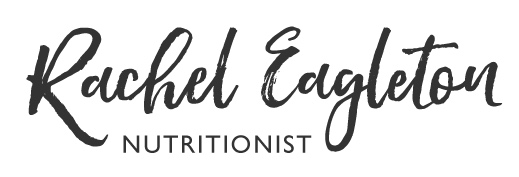How to support your immunity for winter
/It's the early days of winter here in Sydney and the chemists are full of pills and potions designed to help you avoid catching winter colds.
First of all, steer clear of products that claim to “boost” your immune system. Even if you could boost your immune system it wouldn't be good for you. An overactive immune system would lead to a negative immunological response such as an autoimmune disease. We actually want a balanced immune system not a boosted one. Instead we want to support our immune system, especially during colder months when we’re often indoors in closer contact with germs. The link between strong immunity and nutritional intake is clear - more whole foods, fewer ultraprocessed foods, and a balanced intake of essential vitamins and minerals can keep you, and the people around you, from getting sick. Surround yourself with in season fruits and veggies as if they are around you are more likely to eat them! “Red and yellow and pink and green, purple and orange and blue…” To promote immune cell production and protect against inflammation, be sure to “eat the rainbow” by including a variety of different coloured fruit and veggies.
What you can include in your diet
Vitamin C
Why: A powerful antioxidant that aids in the production and function of white blood cells, helps prevent cell damage, and is needed for the function of essential enzymes.
Where to find it: Citrus fruits, kiwifruit and strawberries, and vegetables like red capsicum, broccoli, brussel sprouts
Did You know? Vitamin C is a water-soluble nutrient, meaning it is not stored in cells. Excess amounts pass through the body, so vitamin C can be consumed throughout the day. It is pretty easy to meet your Vitamin C RDI of 45mg if you eat fruit and veggies, for example, one medium kiwi fruit contains about 64mg vitamin C or ½ a cup of broccoli will give you 40mg.
Zinc
Why: A mineral required for essential proteins and antioxidants that play a major role in maintaining immunity. Zinc also enhances the function of T cells, which detect and eliminate infectious and abnormal cells in the body.
Where to find it: The best sources include red meat, poultry, seafood and smaller amounts in nuts and seeds and legumes
Did you know? The recommended daily intake for Australian adult men and women is 8 and 14mg respectively. 100g lean red meat will give you approximately 12mg of zinc or 30g pumpkin seeds provides 3mg. A 2012 systematic review suggested that "zinc formulations may shorten the duration of symptoms of the common cold", but that further research was needed and that possible adverse effects needed to be studied.
prebiotics & Probiotics
Why: Bacteria for your digestive tract that stimulate the production of antibodies and T cells and help cells communicate as they fight off infections.
Where to find it: Wholegrains like oats and breads and legumes will provide fibre to feed your good gut bacteria. Include yogurt and kefir for probiotic culture. Check labels for “contains active/live cultures.” Also miso, raw sauerkraut, kimchi, kombucha, and other fermented foods.
Did you know? In contrast to antibiotics, which means “life-killing” in the Greek etymology, probiotics means “for life” because they are organisms that stimulate growth.
Instead of wasting your money on random immunity supplements at the chemist - which are not clinically proven to enhance immunity - spend that money on seasonal fruit & veg, some yoghurt and soap to wash your hands.
These recipes are my top immune boosting recipes for if someone is starting to get the sniffles. All these recipes are high in vitamin C, contain zinc and contain fibre to feed the gut microbiome.
Roasted tomato and white bean soup
Have you been thinking for a while that you would love to find out more about your gut health or why your weight won’t shift no matter what you do? Or maybe you just want to feel less bloated, have more energy and understand what food you are meant to be eating?
I’m offering a free 15 minute call to work out a nutrition action plan to get you feeling your best. There are no commitments just a friendly chat so we can work out if I’m the right person to help you reach your health goals.
Rachel is a university qualified Clinical Nutritionist based in Balmain. She is also the busy working mum of two teenagers, so is practical and realistic with her advice . Rachel offers private consultations to improve your family's health and well-being. You can find her on Facebook and Instagram for more healthy tips and tricks.

















